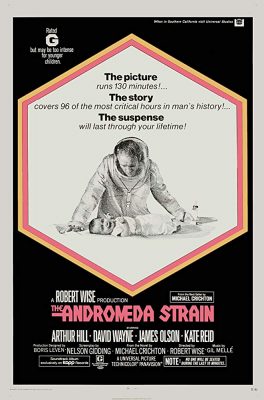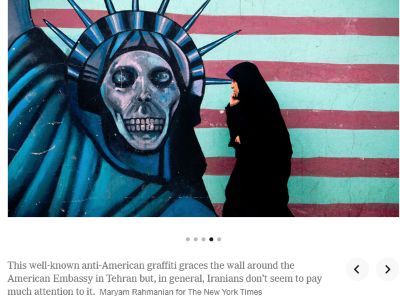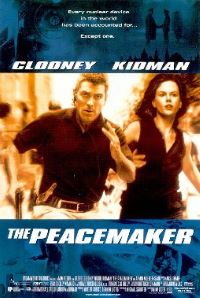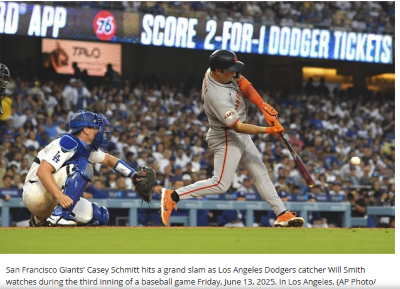
The United States was on the winning side of World War I against Germany. The United States was on the winning side of World War II against Germany and Japan. The United States was on the winning side of World War III, the Cold War, against the Soviet Union. Now the United States is engaged in World War Iv against mainland China. Who will prevail and be the cosmic center of our universe, the City on a Hill or the Middle Kingdom?
For a long time, mainland China has been on a roll. Nothing seemed to stand it is way of global domination. It was to be achieved not in an instance and not through a military conquest. Instead it was to be through a relentless economic expansion that fostered a global connection with mainland China at the node. While politically in America all roads lead to Putin, economically in the world all roads lead to Beijing. As time marched on, the mainland Chinese developed a swagger and pride in its confidence that it would one day replace the United States as the world leader. It was only a matter of time.
Consider this article from two years ago: “Why China Loves Trump: The People Love a Winner, the Leadership Loves a Dupe” by Benjamin Carlson, The Atlantic, March 2018). According to the article, the Chinese Communist Party initially regarded the American President’s threats as “show.” As Shen Dingli, a professor of international relations at Fudan University said: “[Trump] is an especially easy president for China to handle…We are lucky.” His withdrawals from the Trans-Pacific Partnership and the Paris climate agreement were great victories for mainland China and it didn’t have to do anything to secure them. When America simply abandoned its role as world leader under the “America alone” policy of transactional relationships over allies, mainland China was ready to fill the vacuum. Shen Dingli exulted that the American withdrawal had provided mainland China “a huge opportunity.” Xu Guoqi, professor at the University of Hong Kong characterized the Trump presidency as “a gift for the current regime in China. Because of Trump, Xi Jinpng’s Chinese dream [the resurgence of China’s dominance in world affairs] could be achievable now.”
According to the article, even as mainland China enjoys outwitting the American President there is some admiration for him too. This reaction is more pronounced among Chinese students to American colleges who have returned home after having been exposed to the anti-American left ideology which they reject. The Chinese students, too, have contempt for political correctness. As one such student said, the Democratic Party “reminds us a lot of the Cultural Revolution.” Yan Gu, doctoral candidate at the University of Washington said, Chinese “dislike political correctness and neo-liberal rhetoric.” They support the slogan of “Make America Great Again” with the change of one word!
Even though Trump is the leader of the enemy, the mainland Chinese see traits in him they admire. They see him as having a successful, talented, and happy family in contrast while mocking Hillary Clinton for her husband’s affairs. [Keep in mind this article is reporting what the mainland Chinese see of Amrica.] They see him as someone they can do business with since he is unconcerned with morality, human rights, and democracy. “Instead, Trump is transactional.”
An earlier view of China in the very same magazine painted a significantly different picture. “China’s Twilight Years: As immigrants replenish America, China’s population is aging and shrinking” (Howard W. French, The Atlantic, June 2016). This article was written prior to the last presidential election. Since it publication, America has abandoned one of the strengths posited by French in the conflict with mainland China.
Already by 2016, French describes China as “a global juggernaut.” It is moving forward on all continents including in America’s backyard and threatening America’s chances of maintaining its standing in the world. Since the article was written, those trends have only accelerated.
However, French points to mainland China’s Achilles’ heel: demographics. The population is transitioning from a relatively youthful one with an abundant workforce to one with fewer people in that age group. By 2040, even before Hong Kong is scheduled to be absorbed into the Borg collective, the median age in China will increase from 30 to 46 thereby making China an old society. China’s social safety network will be hard pressed to deal with the pension and health needs of an increasingly aging society where the number of people over 65 expands significantly. French predicted that in 2020, the Chinese political leaders will begin to face the issue of allowing growing levels of poverty within an exploding elderly population or acting to avoid that scenario. The Chinese army may be the first to face this dilemma as it begins to shrink in size, already by 300,000 in 2015, because of insufficient manpower. The consequences of the one-child policy are becoming manifest. Thanks to abortions of females, in 2020, French predicts a disparity of excess males to females of 30 million people.
French concludes his article with the thought that America will not face this challenge because of immigrants. He asserts that no other powerful country assimilates outsiders on a scale matched by America. Obviously, he had no idea that America would abandon one of its strengths because many Americans think immigration is one of the country’s weaknesses and that immigrants never assimilate. With mainland China, there is no line to get in and no one overstays a visa. The reverse is true with the United States where the global image of the Statue of Liberty remains strong. It is the City on Hill itself that undermines the call of Lady Liberty and closes off access to an increasing number of countries.
Turning to the present, we find the law of unexpected events has upset the Chinese applecart. There mainland China was moving steadily forward asserting itself in the world when unanticipated events occurred.
First, the immature child President of the United States with no understanding of economics, decided he was going to do something about the trade imbalance. Eventually he learned that he could not push mainland China around. He was able to hurt China and produce the first part of what will become THE GREATEST TRADE TREATY IN WORLD HISTORY. But in the meantime, he may learn that he cannot prevent the world from adopting the mainland Chinese 5G as the basis for the next generation of internet communication. He also does not have the mental necessities to wonder how mainland China leapt to forefront of communication technology and what the United States should do to regain the leadership position.
Second, mainland China has begun to receive some criticism for its authoritarian efforts to assimilate Moslem Uighurs. Obviously the United States cannot take a leadership role in condemning this violation of human rights. First our current President has no interest in human rights, and second the violation is against Moslems, one of his favorite whipping people. Even Moslem countries have been reluctant to condemn mainland China thanks to China’s growing economic dominance in the world. Still, the forced assimilation is a beacon of Chinese ideology to the world that has stirred some resentment.
Third, Hong Kong is asserting the right to be free…at least until 2047. The Chinese Hannitys are busy blaming America for the unrest. The American President is busy standing by idly. It turns out some British traditions have lingered in the Hong Kong consciousness such as the civics the students learn in school. In the meantime, in November, the pro-democracy candidates won sweeping victories. It turns out, the Chinese political leadership is clueless. It really doesn’t know what to do. Between the elections and protests there is no end in sight. There also is no mechanism for dealing with such a situation.
Consider the article “China Needs to Change Strategy after Hong Kong Elections” (Kevin M. Stanley, History News Network, December 22, 2019) that has proved unexpectedly relevant. In his analysis of the current paralysis, Stanley points to a precedent in 2011 in Wuhan, a now familiar name. Stanley notes that in 2011 in this small fishing village, the residents revolted over the seizure of their land. They ousted the communist party officials and police and took over the local government. The conflict was resolved with the freezing of some land seizures, the releasing of prisoners, and the firing of some officials. Obviously this scenario has not been repeated in Hong Kong. Then again the authoritarian Xi Jinping is now calling the shots. Under his leadership Big Brother is everywhere watching everything. Time Magazine quotes one Chinese shopkeeper (December 2-9, 2019):
Chinese people don’t care about privacy. We want security. It’s still not enough cameras. We need more.
Stanley concluded his article with the observation that mainland China is at the crossroads. “Will it double down on repression or listen to the people and chose a new course that will require some compromise?” Stanley has his preferences and he touts Chinese adaptability and survival skills, but then there was another unexpected development. Once again Wuhan is back in the news.
Fourth, there is coronavirus. This unexpected development continues to wreak havoc on mainland China and the world. It would be an understatement to claim that the Government was prepared or even willing to listen to the whistleblowers who attempted to sound the alarm. At this point, no one knows how this crisis will end. Whatever happens, it clearly has undermined the “we are in complete control” model for perpetual good times. The coronavirus exposes the shortcomings of the Chinese Way for all the world to see.
What does all this have to do with the unexpected death of Kobe Bryant? Part of America’s leadership derives from soft power. This term refers to non-military and non-economic power. It refers to Americans movies, music, and entertainment which includes sports. The American culture has been an international leader and powerhouse for decades. Everyone wants to go to Disneyland. The worldwide reaction to the death of Kobe Bryant is an expression of that global leadership.
Will it last? Hollywood already defers to China on subject matter. The NBA also has learned to bow before the Chinese market. When Germany and England accept the 5G network of Huawei they simply are responding to the market power of mainland China. Even in the face of the cornonavirus, some governments worried about offending the economic superpower which dominates downplay the threat. Although China has not yet become an entertainment and cultural powerhouse, America’s position in the cultural world is at risk too, the more the mainland Chinese market dominates it.
One last consideration. In the battle between the Middle Kingdom and the City on a Hill for world leadership, mainland China holds one key advantage. Its citizens want their country to win ad believe it is Middle Kingdom. By contrast, increasingly Americans do not believe in American exceptionalism or that we are a City on a Hill that eyes of the world are upon because we are the last best hope of humanity seeking to make the world safe for democracy while providing a beacon of light to huddled masses seeking to be free. Instead we have the frontal assault of the New York Times 1619 Project that denies the validity of those perceptions of America. In addition Trumpicans are oblivious to any leadership role for America preferring transactional relations instead. In other words, We the People are not even trying to win World War IV while the Chinese are focused on triumphing. The difference is while the Chinese problems are systemic and likely to worsen, the American problems could be fixed if we had a President capable of providing the leadership the world needs.





